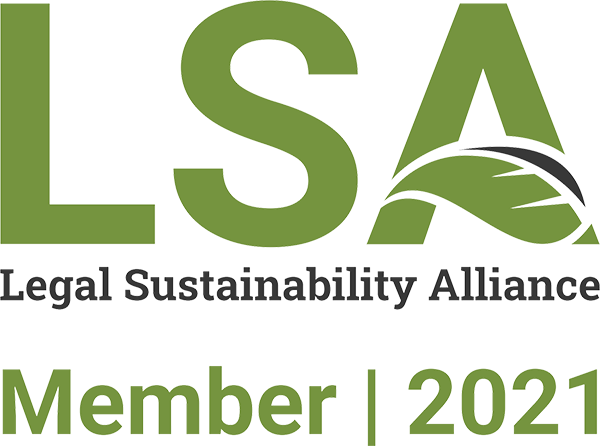On Saturday, 21 March 2020, Emergency Ordinance no. 30/2020 amending and supplementing certain regulatory acts, as well as establishing certain measures in the field of social protection in the context of the epidemiological situation caused by the spread of SARS-CoV-2 virus, came into force.
Practical aspects regarding the application of subsidized technical unemployment
(Partial) payment of employees’ indemnities from the state budget in case of technical unemployment
During the state of emergency, if employers temporarily suspend employees’ labour agreements, the indemnities payable to employees, amounting to 75% of the basic salary corresponding to the workplace, will be paid from the unemployment insurance budget, without exceeding 75% of the gross average salary income provided for by Law no. 6/2020 on the state social insurance budget for 2020. Thus, the maximum monthly amount borne by the state for an employee would be of approximately RON 4,072/month.
The categories of employers that may benefit from the reimbursement of indemnities:
- The employers that have discontinued their activity in whole or in part as a result of the decisions issued by the competent public authorities during the state of emergency. Prerequisite: obtaining the certificate of emergency situations issued by the Ministry of Economy, Energy and Business Environment.
- The employers that cut down their activity as a result of the effects of the COVID-19 epidemic and do not have the financial capacity to pay all employees’ salaries. They will be able to benefit from the payment of the indemnity for a maximum of 75% of the employees who have individual employment agreements active as at the date of entry into force of this emergency ordinance. In other words, the measure only applies to some of the employees the company currently has. Prerequisite: filing a declaration on one’s own responsibility, stating that the employer records a decrease in the receipts from the month prior to the filing of the declaration, by at least 25% compared to the average of the receipts from January to February 2020, and that it has no financial capacity to pay all employees.
How does the prerequisite concerning the decrease in receipts from the previous month apply?
The ordinance does not provide any details on how this prerequisite must be proved. We believe that a reasonable interpretation can be based on the analysis below, and the subsequent proof should be based on the company’s accounting information (trial balance, receipts register, etc.).
The treasury accounts (bank accounts and petty cash- of the class 5 of accounts) are those which, by means of the debit footing, give the size of receipts. Only the receipt part, not the revenues, should be considered, although in an earlier variant an alternative criterion also considered the revenues.
When referring to the average of receipts from January to February 2020, we understand that the Ordinance considers the monthly average. Therefore, in order to draw up this report on the receipts from the month prior to the filing of the declaration, it will be necessary to close the financial statement for that month. This interpretation is also in the spirit of the Ordinance, which states that applications must be submitted in the current month for the previous month.
How does the prerequisite regarding the financial inability to pay all employees apply?
According to a reasonable interpretation, this financial “inability” should refer to the unavailability of the amounts, i.e. a cashflow problem. We also have in mind the analogy with the inability provided for in the insolvency law which states the inability to pay the debts owed with the “available money funds“.
Therefore, the fact that the company has receivables that would normally ensure its cash availability does not mean that it would not qualify to apply for this aid. The ordinance refers to the inability to pay “all employees”. Therefore, even if the company has the funds available to pay the majority of the employees, but not all of them, we understand that it can still call on the help provided by the Ordinance.
Furthermore, salary claims are not the only debts of a company. Therefore, even if the company had the necessary amounts to pay the salary claims for that month, we believe that this measure should be applicable to it if it does not have sufficient funds to cover all the necessary expenses, including the salary expenses.
Taxes and contributions related to the indemnity
The indemnity is subject to taxation and payment of mandatory social contributions, according to the Fiscal Code. The withholding and payment of income tax and social security contributions are made by the employer from the indemnities received from the unemployment insurance budget. The payment date is the 25th of the month following the month in which the payment is made from the unemployment insurance budget. Employers will not owe the employment insurance contribution for the technical unemployment indemnity. As a preliminary point, please note that the measure to tax the indemnity subsidized by the state is illogical. Moreover, arguments of constitutionality could also be brought into discussion, as taxation normally applies to income which, according to art. 76 of the Fiscal Code, results from an “activity”, not a lack of activity.
Submission of the documentation
Employers wishing to benefit from the amounts for the payment of this indemnity must submit, by e-mail, to the county employment agencies, respectively to the Bucharest municipality employment agency, an application signed and dated by the legal representative. The application form can be found in annexes no. 1 and 2 at the emergency ordinance. The application must be accompanied by the list of the persons who will benefit from this indemnity, assumed by the legal representative of the employer, according to annex no. 3 to the emergency ordinance. Also, depending on the category into which the employer falls, the certificate of emergency situations or the declaration regarding the decrease in receipts will have to be attached to the application.
The application and the documents attached thereto must be submitted in the current month for the payment of the indemnity for the previous month, and the payment of the amounts paid as indemnity will be made within a maximum of 30 days of the submission of documents.
How to select employees holding same nature positions for technical unemployment
In lack of any express provisions in the Ordinance, the selection criteria remain at the employer’s latitude, the latter having the obligation to provide an equal treatment for employees. By analogy with the criteria applicable to dismissal, we believe that employee performance criteria can be used.
Naturally, before resorting to technical unemployment, the employer should also consider the other activity reduction means (e.g.: work program reduction) as well as the parents’ possibility to benefit from Law 19/2020.
Law 467/2006 establishing the general employee information and consultation framework continues to be applicable, and a possible opposition by the employees’ representatives/unions should be considered and accepted or dismissed on a substantiated and documented basis.
Clarifications in relation to the parents’ leave
Law 19/2020 on the granting of certain days off to parents for the supervision of children, in case education establishments are temporarily closed
The main amendments made to this law are the following:
- Days off may also be granted in case of a temporary suspension of classes in the education establishments where the children are registered.
- The calculation basis is clarified: the indemnity will be 75% of the basic salary corresponding to a day of work which means the no other income will be considered (other indemnities, commissions or allowances of a permanent nature).
- The law clarifies who are the persons that benefit from paid days off pursuant to the law: (a) the natural parent; (b) the adopting parent, (c) the person to whom the child/children is/are entrusted for adoption; (d) the foster parent or the legal guardian; (e) the child’s caregiver in the absence of the parent or legal guardian, as the case may be, pursuant to art. 104 par. (2) of Law 272/2004; (f) the parent or the legal representative of the disabled adult registered in an educational establishment; (g) the parent or the legal representative of the seriously disabled adult not attending educational establishments, who chose to receive the indemnity pursuant to Law 448/2006 on the protection and promotion of the disabled persons’ rights, only if his/her day job is suspended as a consequence of the situations provided by this law; (h) the parent or legal representative who takes care of, supervises and provides for the seriously disabled adult (in Romanian handicap grav) or for a seriously disabled person with personal assistant, for which the indemnity was requested pursuant to Law 448/2006 on the protection and promotion of the disabled persons’ rights, only if the disabled person benefits from day-services whose activity was suspended due to the situations stipulated by the current law.
- The paid days off may not be awarded pursuant to this law if one of the parents is under one the following situations: (a) he/she benefits from child care leave; (b) he/she is the personal assistant of the one of the children that he/she provides for; (c) he/she is on annual leave/non-paid leave; (d) the persons in technical unemployment or the spouse of such persons; (e) in case the other parent does not earn salary incomes or salary-assimilated incomes, incomes from independent activities, incomes from IP rights, incomes from agricultural activities, forestry and pisciculture, which are subject to income tax pursuant to the Fiscal Code. Therefore, days off may be granted to the spouse of a person working under the work-from-home or remote work regime.
- The sworn statement of the other parent must also certify that he/she is not on childcare leave, annual leave or non-paid leave, respectively that he/she is not the personal assistant of one of the children he/she provides for.
- The activity sectors in which employers may refuse to grant days off for child supervision is supplemented with the following: food trading, production and distribution of medicines and sanitary equipment, distribution of fuels, pharmaceutical establishment.
- Employers in the activity sectors expressly stipulated by the law will grant days off only after exhausting all options stipulated by the legal provisions in force for conducting their activity and having the obligation to ensure the continuity of the activity, including by individualized work programmes, shift working, work-from-home and remote working.
- Employers may only request the disbursement of the amounts representing the net remuneration actually received by the person, while the corresponding taxes and social insurance contributions will be incumbent on employers.
Government Emergency Ordinance 158/2005 on social health insurance leaves and indemnities
The main amendments made to this legal act are the following:
- Persons insured for social health insurance leaves and indemnities benefit from a right to be on leave and from a quarantine indemnity, with a purpose to prevent spreading the disease, without having to comply with the insurance period requirement.
- The medical leave certificates released during the state of emergency period and that exceed 91 days and 183 days, respectively, will be issued and disbursed without the approval of the social insurance expert doctor.









